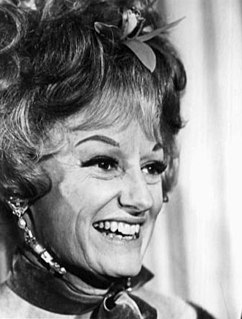A Quote by Alberto Manguel
Most readers, then and now, have at some time experienced the humiliation of being told that their occupation is reprehensible.
Quote Topics
Related Quotes
It's important to remember that World War II was experienced very much as a continuity in that sense. Most of World War II in most of Europe wasn't a war; it was an occupation. The war was at the beginning and the end, except in Germany and the Soviet Union, and even there really only at the end. So the rest of time it's an occupation, which in some ways was experienced as an extension of the interwar period. World War II was simply an extreme form, in a whole new key, of the disruption of normal life that began in 1914.
A reader is entitled to believe what he or she believes is consonant with the facts of the book. It is not unusual that readers take away something that is spiritually at variance from what I myself experienced. That's not to say readers make up the book they want. We all have to agree on the facts. But readers bring their histories and all sets of longings. A book will pluck the strings of those longings differently among different readers.
A friend told me the longer you keep Romano cheese, the better it gets. So, I kept it three years. And this thing turned mean. Now and then I'd open the refrigerator door and throw it some food. I'd have to walk it now and then. And then it grew this one leg. And it's got this ugly fuzz all over it. And the dogs won't run with it.
If Fobbit leaves a reader feeling stranded in some bland in-between territory, then I haven't done my job. But having said all that, I didn't consciously write the book with a particular moral intent. I took what I experienced and processed it through the sausage factory of fiction. It's up to readers to interpret what's on the page - as is the case with any novel.
An interesting difference between new and experienced stage managers is that the new stage manager thinks of running the show as the most difficult and most demanding part of the job, whereas the experienced stage manager thinks of it as the most relaxing part. Perhaps the reason is that experienced stage managers have built up work habits that make then so thoroughly prepared for the production phase that they [can] sit back during performances to watch that preparation pay off.







































